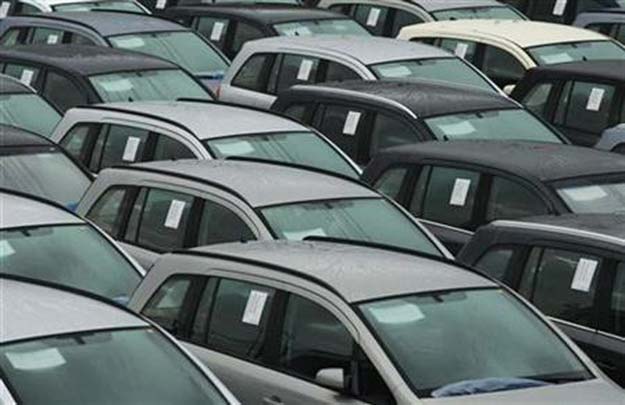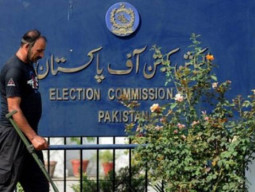
The subcommittee of the National Assembly Standing Committee on Industry and Production on Tuesday sought details of the agreements between the government and car manufacturers from the ministry besides three-year tax records and financial statements from the Federal Board of Revenue (FBR).
During a meeting, chaired by Riazul Haq, the committee was informed that the Pakistan Steel Mills (PSM) had been closed for five and a half years. The PSM chairman also told the committee that non-core sections of the PSM could be re-operated but in this regard, there was no clear government policy.
The meeting discussed the issue of increase in prices vehicles. Briefing the committee, the industries ministry’s Additional Secretary Hamid Atiq Sarwa said that companies took the stance that depreciation of the rupee and increase in taxes had led to the hike in prices.
The old company was Suzuki in which the government of Pakistan also had shares, he said, adding that but now other companies were also coming to Pakistan. “Now the Chinese and the Korean companies are also coming to Pakistan,” he added.
Officials of the Engineering Development Board (EDB) told the committee that other companies came to Pakistan in the 1990s and some taxes were levied which were opposed by the EDB. The officials said that there were Rs120,000 to-140,000 taxes on a vehicle worth Rs4 million.
The pointed out that 17% general sales tax (GST) and 5% federal excise duty (FED) was also levied, while taxes were also levied on the raw materials in the same proportion, adding that only a reduction in the tax rate could control the rise in the prices.
The committee heard that 6 plants were operational in the country after 2016, while the country did not have the capacity to produce 100,000 engines annually. The lawmakers were also told vehicles of many companies had entered the market and there was an atmosphere of competition.
The Federal Board of Revenue (FBR) officials told the committee that the sales tax had been fixed 17% for the past five years, while 2.5-7.5% FED was levied on vehicle using up to 1,000 cubic centimetres (CC) engines.
The additional industries secretary said that the government had taken steps to curb the import of vehicles and increase local production, adding that tax rates on imported vehicles had been increased further.
Rahat Kaunain Hassan, Chairman of the Competition Commission of Pakistan (CCP) informed the committee that the CCP could not take notice of the price hike, as its area of work was to looks at cartelisation in the market players.
He suggested that the Securities and Exchange Commission of Pakistan (SECP) should be assign the task of investigating the issue. The committee summoned the SECP over the increase in vehicle prices in its next meeting.
Committee member Osama Qadri raise the question if there was a provision for transfer of technology, when the companies were allowed to make production in Pakistan. The committee sought copies of the agreements with car manufacturers from the industries ministry.
Committee member Muhammad Akram said that the Competition Commission had to stop profiteering in the car-manufacturing industry. He pointed out that the period of car delivery was reduced by paying an additional Rs200,000.
The CCP officials said that the Pakistani car industry did not book orders based on manufactured vehicles, stressing the need for changing the car booking model. However, EDB officials said if the people stopped paying the so-called own money, the practice could end.
While briefing the committee, the PSM chairman said that the plant had been closed for five and a half years, therefore, payment could not be made to the Employees Old-Age Benevolent Fund (EOBI). As a result, he added, the employees could not get their pensions.
He added that funds were being released and the issues would be resolved through negotiations with the workers’ unions. He also said that the non-core parts of the steel mill could be re-operated but there was no clear government policy in this regard
He informed the committee that the PSM had 19,013 acres of land, while the plant had been built on 1,268 acres. He added that 930 acres of land had been given to the National Industrial Park. He also said that payment had been made for the land acquired from Sindh government for industrial purposes.




1732184775-0/BeFunky-collage-(80)1732184775-0-165x106.webp)

1732189200-0/Express-Tribune-(13)1732189200-0-270x192.webp)
1732184492-0/BeFunk_§_]__-(25)1732184492-0.jpg)

1732179298-0/BeFunk_§_]__-(23)1732179298-0.jpg)

1732181665-0/Express-Tribune-(9)1732181665-0-270x192.webp)






COMMENTS
Comments are moderated and generally will be posted if they are on-topic and not abusive.
For more information, please see our Comments FAQ